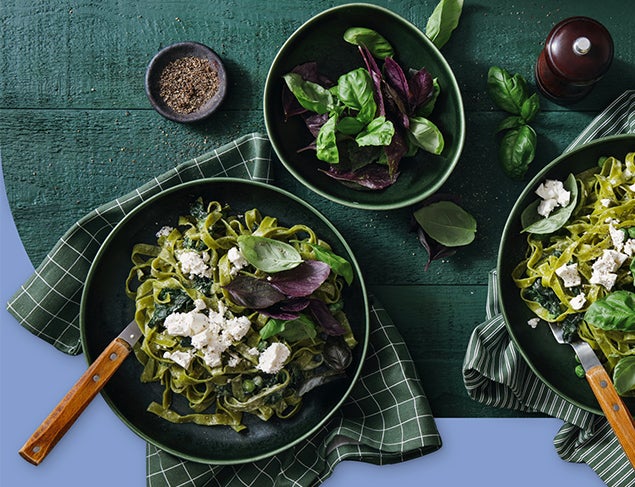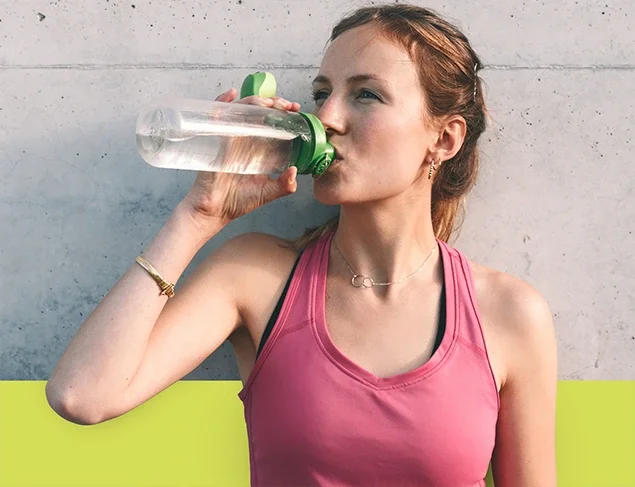We all need friends.
No matter how old we are, our gender, how many siblings we have or what job we do, building healthy friendships is vital for our emotional and mental wellbeing.
But what’s the connection between them?
First, let’s get clear on what ‘friendship’ means. According to Consultant Psychologist Dr Bec Jackson, “Our friends are part of our social connections, which is about sharing time and experience with another person.”
She adds that these social connections are often friends, but they can also be family, colleagues and your community.
Building strong social connections improves your mental wellbeing
Dr Bec also says that all your relationships have an impact on your mental wellbeing. She comments that some of the many benefits of quality social connections include:
- lower rates of anxiety and low mood
- higher self-esteem
- greater empathy
However, she says that it’s not just about the number of friends you have – quality matters just as much as quantity. “Throughout your life, both the number and strength of your relationships affect your mental, emotional and physical wellbeing.”
That means someone with a few close, supportive friends may be just as happy and healthy – if not more so – than someone with a wide circle of casual acquaintances

According to Dr Bec, the recommended average of social connections for a healthy life is three relationships.
How do you tell if your relationships are healthy?
A healthy friendship is built on trust, respect, gratitude and care. So Dr Bec says that if your friends respect your boundaries and you respect theirs, that's a sign of a positive, supportive relationship.
Good friends also look out for each other and listen without interrupting. And a sure sign that a friendship is worth keeping is when you just feel like life is better with your friend in it.
However, the unfortunate reality is that not all of the friendships we build are healthy ones. Signs that your friendship might be unhealthy (and perhaps even toxic) include a friend who:
- lies to you about something important – either overtly or by omission
- gossips about you or reveals something you told them in confidence to someone else
- doesn’t accept you for who you are or actively tries to change you
- makes everything about them when you talk to them
- refuses to make time for you, while expecting you to be on-call for them 24/7
- makes you feel in any way nervous or unsafe
- In these situations, it may well be healthier to let the friendship go, and look for connection elsewhere.
Your relationships contribute to your life satisfaction
As we get older, it can be hard to make new friends and even harder to maintain current friendships. But making the effort to establish and strengthen your relationships is worth it.
Relationships and social connectedness create a positive feedback loop of social, emotional and physical wellbeing. When you feel connected with others and have strong relationships, you’re likely to have a better quality of life and be more satisfied with it too.
Having a strong social network can even help to improve your libido, regardless of whether you’re single or in a romantic relationship.
Is loneliness making you unwell?
Dr Bec says that strong, healthy relationships can also affect your physical health. She mentions that they can help to strengthen your immune system, help you recover from illness, and may even lengthen your life.
On the flip side, she adds, loneliness and social isolation can have negative consequences for your health. Loneliness can lead to disrupted sleep patterns, elevated blood pressure, and an increase in the stress hormone cortisol. It can also decrease your overall sense of contentment, self-worth and meaning.
However, Dr Bec cautions that it’s essential to understand that loneliness is different from solitude. Many people enjoy spending time alone – some find they need that time to themselves to re-energise. These people still need some social connection, but may need less than others do.
So living alone or enjoying time spent in solitude can be perfectly healthy. It’s the feeling of loneliness that’s the problem.
How many friends do you need?
We mentioned above that having enough healthy relationships in your life is as much about quality as it is about quantity. But for most people, having a single good friend isn’t enough for optimal connection.
According to Dr Bec, the recommended average of social connections for a healthy life is three relationships, although some people will have more and some less.
She says that aiming to build five supportive relationships in your life means you’ll benefit from everything that healthy, positive social connections have to offer.

Strong, healthy relationships can affect your physical health. They may even lengthen your life.
5 tips to foster closer relationships
- Be affectionate. Smile at the other person and make eye contact with them. Perhaps touch them gently on the arm or shoulder when you’re talking or hug them, although note that different people can have different comfort levels around touch.
- Show appreciation. Say thank you, even when your friend just does something small. You could also send them a card or tell them how they make your life better.
- Make them a priority. Reply quickly to their messages, call them frequently and make time regularly to catch up with them.
- Work on your sense of self-worth. When you enjoy being with yourself, others do too. And feeling confident and happy in yourself makes it easier to relax and enjoy being around other people.
- Apologise when you make a mistake. We all make mistakes, but apologising and trying to fix things where possible shows genuine concern for how your actions have affected the other person.
The good news is that even though your life may run in a different direction to your friend’s, technology makes it easy to stay in contact. To maintain a sense of closeness despite physical distance, send them messages or emails, share photos and make time for phone or video calls.
Using Dr Gary Chapman’s five love languages can also help you to build solid relationships. When you understand what makes your friends feel loved, it’s easier to build a deeper connection with them.
Strengthening relationships to improve your mental wellbeing
Sometimes when we’re going through a rough patch, we can pull away from family and friends. We don’t want to burden them with what’s happening for us.
But Dr Bec says that pushing through a sad or stressful time alone takes a toll on your mental wellbeing. So instead of avoiding people, let them know how you’re feeling. Tell them that because you care, you don’t want to offload all your stress onto them. Explain that what you need right now is to talk with people who understand you.
When we approach tough topics with honesty, the people closest to us lean in with support and love. It’s important to let the ones we care about into our lives – in fact, this vulnerability can actually strengthen relationships.
Dr Bec’s key takeaway is that we should all make time and space in our lives for healthy relationships. Our minds and bodies both benefit from uplifting, nurturing friendships.
recommended reading for you
Want a happy life? Try these hacks
You can’t hack happiness, but you CAN still be happy in life, whatever it throws at you. Here’s how…
Brain food vs superfood: what's the difference?
The terms 'brain food' and 'superfood' are often used interchangeably – but there's a key difference. Accredited Dietitian Shivaun Conn explains.
How to create habits you can actually stick to (for good this time)
Habits live in our brains, which can be quite complex beasts! But a basic understanding of how habits develop and some expert tips will get you on the healthy habit train in no time. Here’s what you need to know…
Tunes to get your healthy on
Enjoy three playlists created especially for you while we take a deeper look at how music can be good for you and your health
Reviewed by healthylife Advisory Board June 2021






